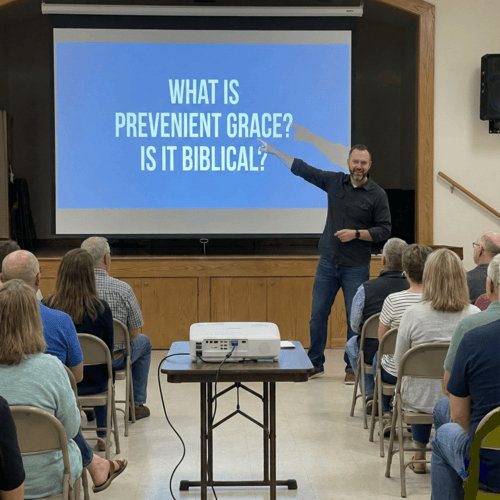The Visible vs Invisible Church: Understanding the Critical Difference
Jesus once told a parable about a field where both wheat and weeds grow together until the harvest. When servants asked about pulling up the weeds, the master commanded them to let both grow together until the final gathering, lest they accidentally uproot the wheat while removing the weeds. This compelling picture perfectly illustrates one of Christianity’s most important distinctions: the visible and invisible church.
Just as the field contained both wheat and weeds growing side by side, the church in its earthly form contains both true believers and those who merely appear or profess to believe. Yet, unlike the servants in the parable, we can’t always tell which is which. This reality points us toward a crucial theological understanding that helps us navigate church life, membership, and the nature of true faith itself.
What is the Visible Church?
The visible church refers to the earthly, institutional expression of Christianity that we can see and interact with. It includes all who profess faith in Christ, along with their children, regardless of the genuineness of their profession. Think of your local congregation, with its Sunday services, membership rolls, and organised programmes—this is part of the visible church.
The visible church bears certain distinguishing marks: the faithful preaching of Scripture, proper administration of baptism and the Lord’s Supper, and the exercise of church discipline. Through these means, the visible church fulfils its God-given role to proclaim the gospel, nurture believers, and maintain godly order.
However, like Jesus’ parable of the wheat and weeds, the visible church contains both true believers and those who merely profess faith without possessing it. This mixed nature is inevitable in this age, as only God can perfectly discern the heart.
Understanding the Invisible Church
The invisible church, by contrast, consists of all true believers throughout history—those genuinely saved by grace through faith in Christ. Unlike the visible church, membership in the invisible church isn’t determined by attendance records or formal affiliation but by God’s sovereign work of salvation in individual hearts.
This invisible church transcends denominational boundaries, geographical locations, and even time itself. It includes believers from every era of history, from every nation, tribe, and tongue. A medieval believer in France, a contemporary Christian in China, and a future convert in Brazil may all belong to this invisible church, united by genuine faith in Christ.
The invisible church is perfect and pure, containing only those who’re truly regenerate. While we cannot definitively identify its members, God knows those who are His. This church will be fully revealed only at the final judgement.
The Visible Vs Invisible Church—How Do They Relate?
The relationship between the visible and invisible church is complex but crucial to understand. While they overlap significantly, they aren’t identical. Consider these key points:
- Not everyone in the visible church belongs to the invisible church. Some may participate in church activities, receive the sacraments, and profess faith, yet lack genuine salvation. This sobering reality calls for personal self-examination and highlights the importance of genuine faith over mere religious observance.
- Second, all members of the invisible church should, under normal circumstances, belong to the visible church. While God may have His people outside organised churches in exceptional situations (like severe persecution), the normal pattern is for true believers to participate in local church life.
Common Misconceptions
Many today claim they can be Christian without church involvement. In other words, they’re saying, “I don’t need the visible church.” This attitude misunderstands God’s design. The visible church, despite its imperfections, remains God’s ordained means for spiritual growth, accountability, and corporate worship.
Others err by placing excessive confidence in visible church membership, assuming it guarantees salvation. This dangerous presumption ignores the biblical warning that not all who say “Lord, Lord” truly belong to Christ.
Practical Implications
This distinction carries significant practical implications:
- For individual believers, it calls for both committed church involvement and genuine faith. Regular participation in church life should flow from and nurture authentic spiritual life. We should neither neglect the visible church nor trust in mere external participation.
- For church leaders, this understanding shapes ministry approach. While we must faithfully shepherd the visible church through preaching, sacraments, and discipline, we shall do well to remember true spiritual growth comes through God’s work, not human effort alone.
The Visible Vs Invisible Church—Moving Forward in Faith
Understanding the visible and invisible church helps us maintain proper perspective. We value and participate in the visible church while remembering true salvation transcends external membership. This balanced view promotes both humble commitment to local church life and confident trust in God’s sovereign work of salvation.
The visible church serves as the primary context where members of the invisible church are nurtured, equipped, and sent out for service. Rather than using this distinction to minimise church involvement, we should see it as motivation for faithful participation while maintaining our ultimate trust in God’s saving work.
As we commit ourselves to active involvement in the visible church, may we examine our hearts to ensure we truly belong to the invisible church of genuine believers. For in the end, what matters most is not just where we attend, but whether we truly belong to Christ.
The Visible Vs Invisible Church—Related FAQs
How can I know if I’m part of the invisible church? Believers can have genuine assurance of their salvation through the inner witness of the Holy Spirit, who testifies with our spirit that we are children of God. This assurance is strengthened as we see evidence of the Spirit’s work in our lives: a growing love for God and His Word, ongoing repentance from sin, genuine love for fellow believers, and perseverance in faith despite trials. For a deeper understanding of this crucial truth, do check out our post Assurance of Salvation: Can I Really Know I’m Saved? where we explore how the Spirit’s inner witness provides an unshakeable anchor for our souls in life’s storms.
- Can I be part of the invisible church without being part of the visible church? While God may preserve His people outside organised churches in exceptional circumstances (like severe persecution), this is not the normal pattern He has established. Scripture consistently portrays genuine believers as part of local congregations, and willful rejection of church membership often indicates a misunderstanding of God’s design for the Christian life.
- Does church membership automatically make someone part of the invisible church? Church membership, while important, does not guarantee genuine salvation. True membership in Christ’s body comes through genuine faith and the Spirit’s regenerating work, not through institutional affiliation or external religious observance.
Why bother with the visible church if only the invisible church truly matters? God has ordained the visible church as His primary means for nurturing spiritual growth, providing accountability, and advancing His kingdom. The preaching of the Word, administration of sacraments, and exercise of discipline are essential means of grace that typically occur within the visible church.
- What about denominations—which one represents the true invisible church? The invisible church transcends denominational boundaries and includes true believers from many different churches who hold to the essential truths of the Christian faith. No single denomination can claim exclusive status as the invisible church.
- How should this understanding affect how we view church discipline? Church discipline should be exercised with both firmness and humility, recognising that while we can address visible violations of God’s commands, we cannot infallibly determine anyone’s spiritual state. The goal is always restoration rather than mere punishment.
What happens when the visible church gets things wrong or falls into error? While individual congregations or even entire denominations may err, God preserves His invisible church throughout history. When serious error occurs, believers may need to seek fellowship elsewhere, but should do so carefully and with proper respect for church authority.
The Visible Vs Invisible Church—Our Related Posts
Editor's Pick

Prevenient Grace: 5 Reasons the Doctrine Fails
Can a spiritually dead person choose God? It’s one of the oldest questions in Christian theology. And how we answer [...]

Why Do People Hate the Doctrine of Election?
…WHEN THEY REALLY SHOULDN’T Few Bible doctrines provoke stronger reactions than election. The idea that God chose some for salvation [...]

The Doctrine of Providence: Does God Really Govern All Things?
You’re sitting in the doctor’s office when the diagnosis lands like a thunderclap. Your mind races: Why this? Why now? [...]
SUPPORT US:
Feel the Holy Spirit's gentle nudge to partner with us?
Donate Online:
Account Name: TRUTHS TO DIE FOR FOUNDATION
Account Number: 10243565459
Bank IFSC: IDFB0043391
Bank Name: IDFC FIRST BANK






